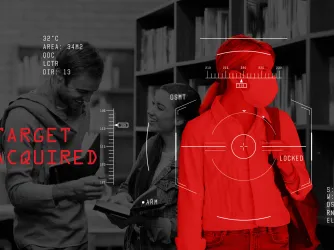Table of Contents
FIRE Releases Second Edition of ‘Correcting Common Mistakes in Campus Speech Policies’

I’m pleased to announce that today, FIRE is releasing a revised and updated second edition of our handbook for college administrators, Correcting Common Mistakes in Campus Speech Policies. First issued in 2009, our Common Mistakes guide takes a look at the most consistent and problematic speech restrictions found in university policies and provides FIRE’s recommendations as to how those mistakes can be corrected to protect student and faculty expressive rights.
New for the second edition, our handbook goes through an in-depth review of campus sexual harassment and discriminatory harassment policies, which often contain broad and vague language encompassing much speech protected by the First Amendment. In light of the pressure placed on universities in recent years by the federal government to promulgate such policies, FIRE is very concerned that students’ and professors’ freedom of speech is being shortchanged in the process. Therefore, we hope that our revised Common Mistakes guide will help erase the confusion that exists in this arena and bring clarity to university policymakers.
Similarly, our handbook addresses campus expressive activity policies that regulate demonstrations, protests, distribution of literature, and similar activities. As the updated Common Mistakes guide discusses in great detail, policies that misapply the “time, place, and manner” doctrine and cabin student expression to tiny and remote “free speech zones” do a great disservice to the free flow of ideas on campus and flout well-established law with respect to public colleges and universities.
In addition to harassment and demonstration policies, the updated Common Mistakes guide analyzes commonly seen restrictions in university posting regulations, information technology and network use policies, civility statements, bias reporting protocols, and more. It also addresses common mistakes in the maintenance, rather than substance, of university policies, such as password-protected policies and speech codes that are inconsistent with other existing policies.
We hope that administrators at colleges and universities throughout the country—both public and private—will take advantage of this timely resource and put it to good use in reforming their institution’s speech-related policies. FIRE is always on standby to assist an institution with improving its speech code rating, and we have already worked with five schools this year to attain our highest, “green light” rating. We hope for many more success stories in the months and years to come!
Please check out the second edition of our Correcting Common Mistakes in Campus Speech Policies handbook today!
Recent Articles
Get the latest free speech news and analysis from FIRE.

FIRE statement on FCC approval of Skydance-Paramount acquisition

The mercenary spyware industry is a menace to global free expression

Smile for the surveillance state
